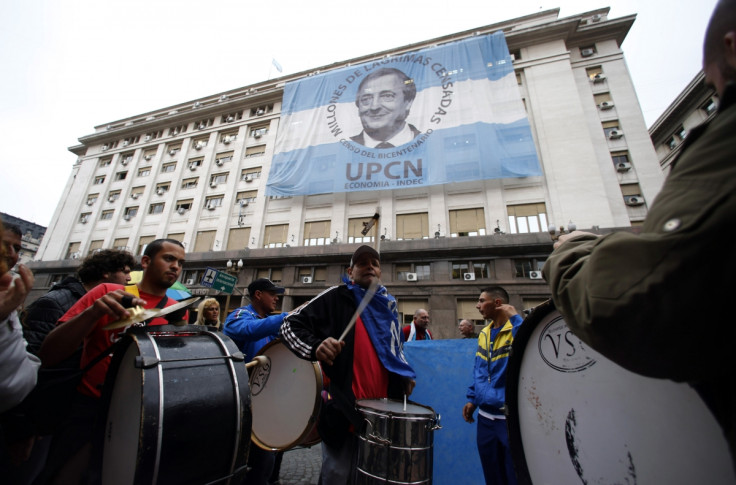Argentina Debt Fallout: New Rules Proposed to Prevent Similar Defaults

A group of banks and investors is proposing a new framework to govern the relationship between critically indebted countries and their creditors after Argentina's case with holdout creditors led to serious debate.
The International Capital Market Association (ICMA), representing more than 400 of the world's largest banks, investors and debt issuers, is releasing a revised collective action clause to deal with defaults on sovereign debt.
According to current rules, a minority of creditors may delay a restructuring of sovereign debt that the majority agrees on.
The minority group's ability to block restructuring could discourage other investors from joining a comprehensive restructuring plan.
The reforms proposed by ICMA would limit the so-called holdout creditors' ability to litigate and undermine debt restructurings, in part by using contract clauses to bind all bond-holders to debt restructurings that 75% of all holders agree on.
In addition, the proposal would argue that the "pari passu" or parity clause in existing bond contracts should always mean that holdout funds should receive the same restructured bonds that the majority of investors agree on.
"This is a step in the right direction and we really applaud the US government's leadership on this," said Eric LeCompte, executive director of the religious debt relief organisation Jubilee USA.
"I am concerned that this won't do enough to prevent litigation against poor countries in the next decade. We still need a statutory approach."
The reforms are aimed at preventing repeats of the Argentina/NML Capital debt dispute.
The country has been engaged in a long legal battle with hedge funds led by Elliott Management and Aurelius, which refused to take part in the country's debt restructuring. About 92% of the country's creditors agreed to swap debts and accept less money.
The holdout funds later sued the government for full payment.
US District Judge Thomas Griesa had earlier ruled in favour of the so-called vulture funds, barring Argentina from paying the holders of its restructured debt unless it pays the hedge funds. He has also blocked Argentina's coupon payment to restructured bondholders through the Bank of New York Mellon.
The country's settlement talks with the holdout creditors failed and it ended up defaulting on its debt at the end of July.
The Democratic Republic of the Congo, one of the world's poorest countries, and the Caribbean nation of Grenada are facing an identical legal argument used against Argentina.
© Copyright IBTimes 2025. All rights reserved.






















